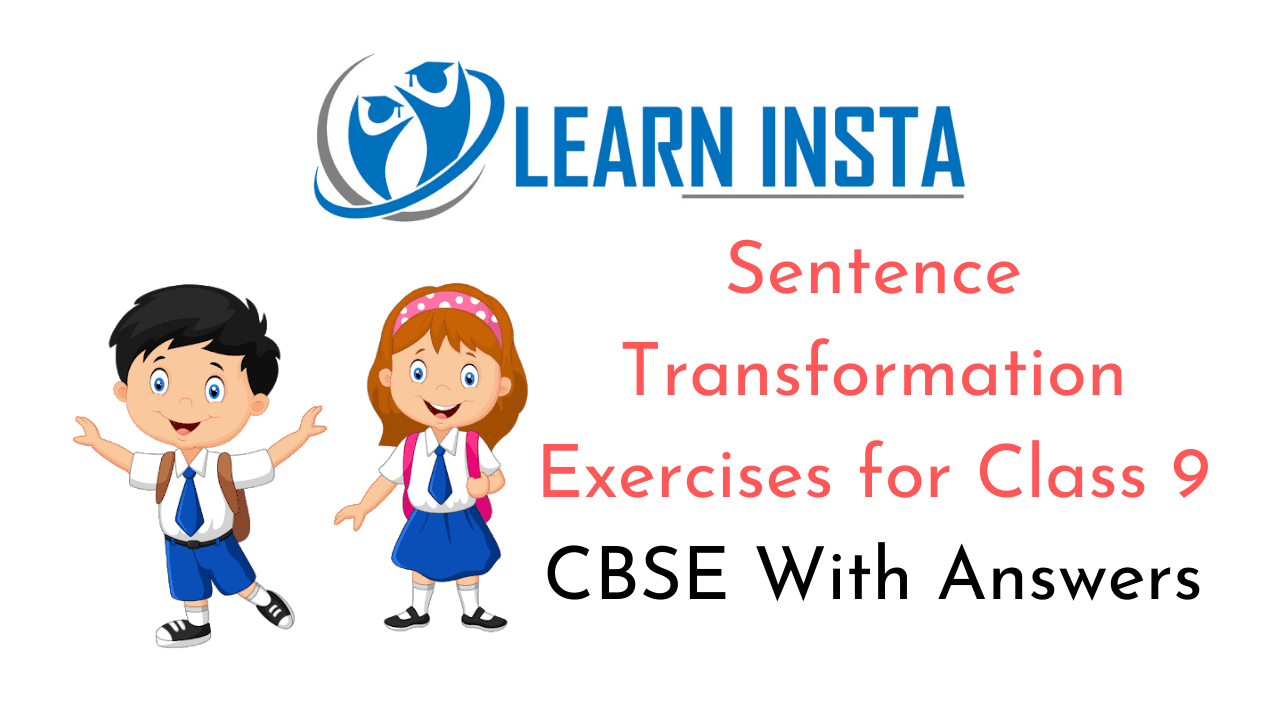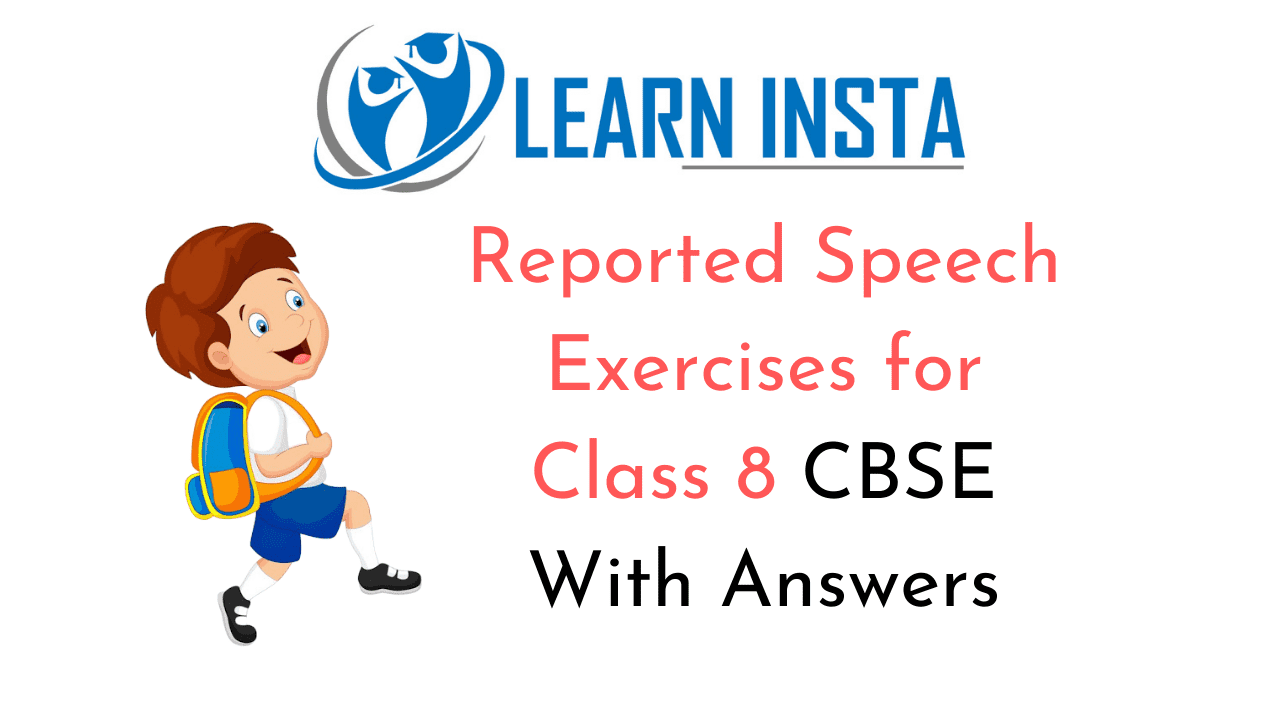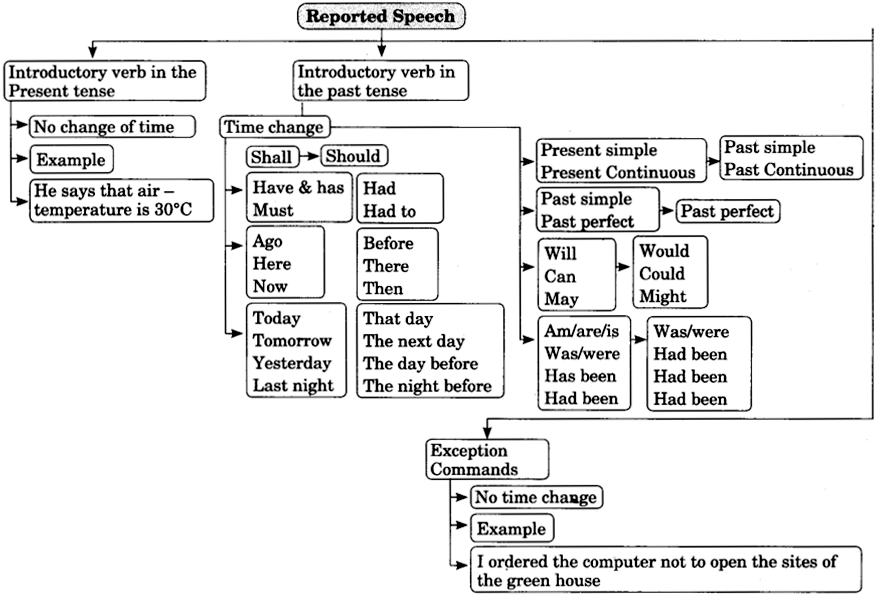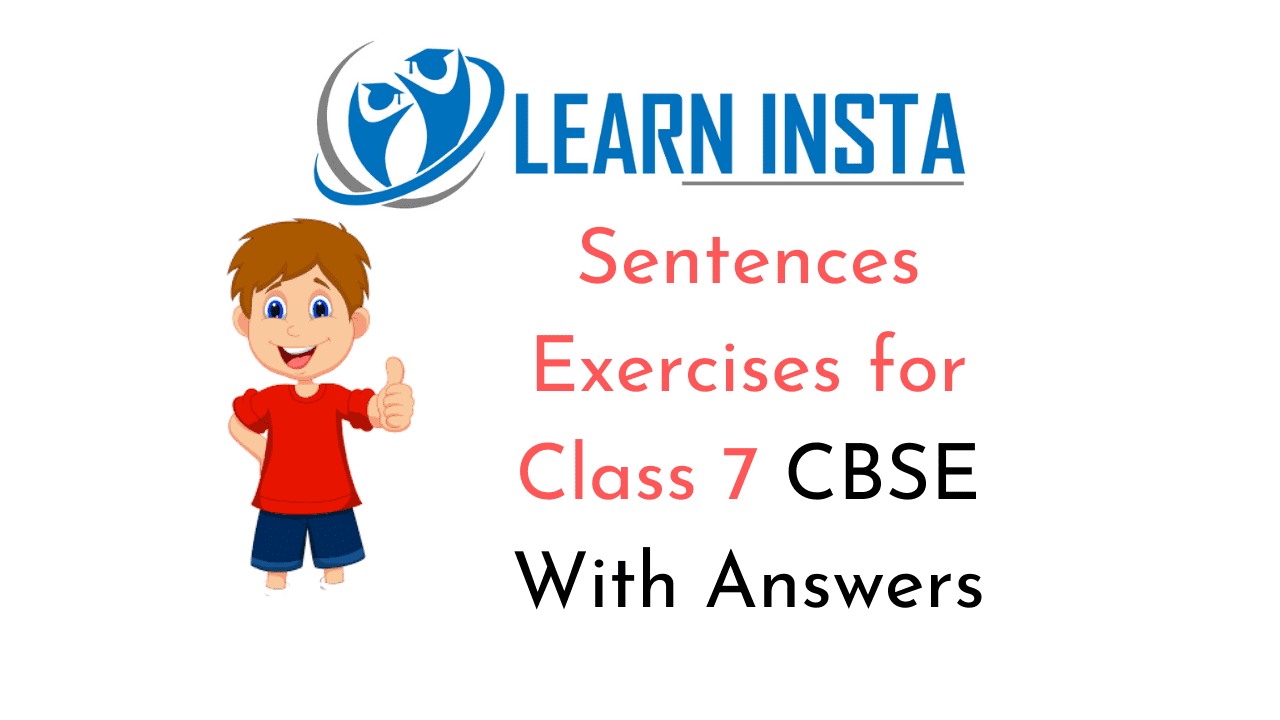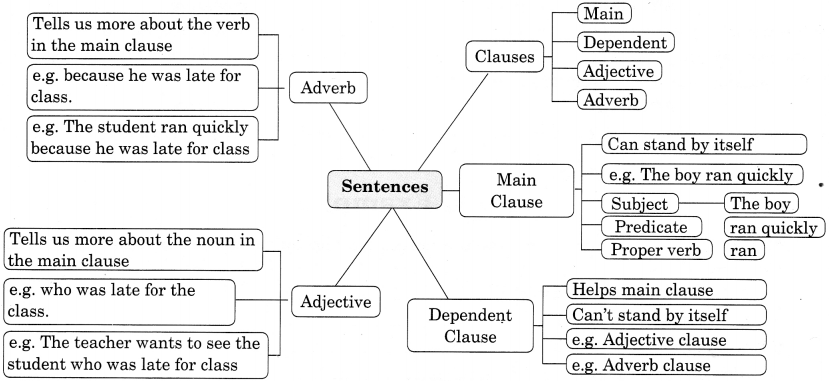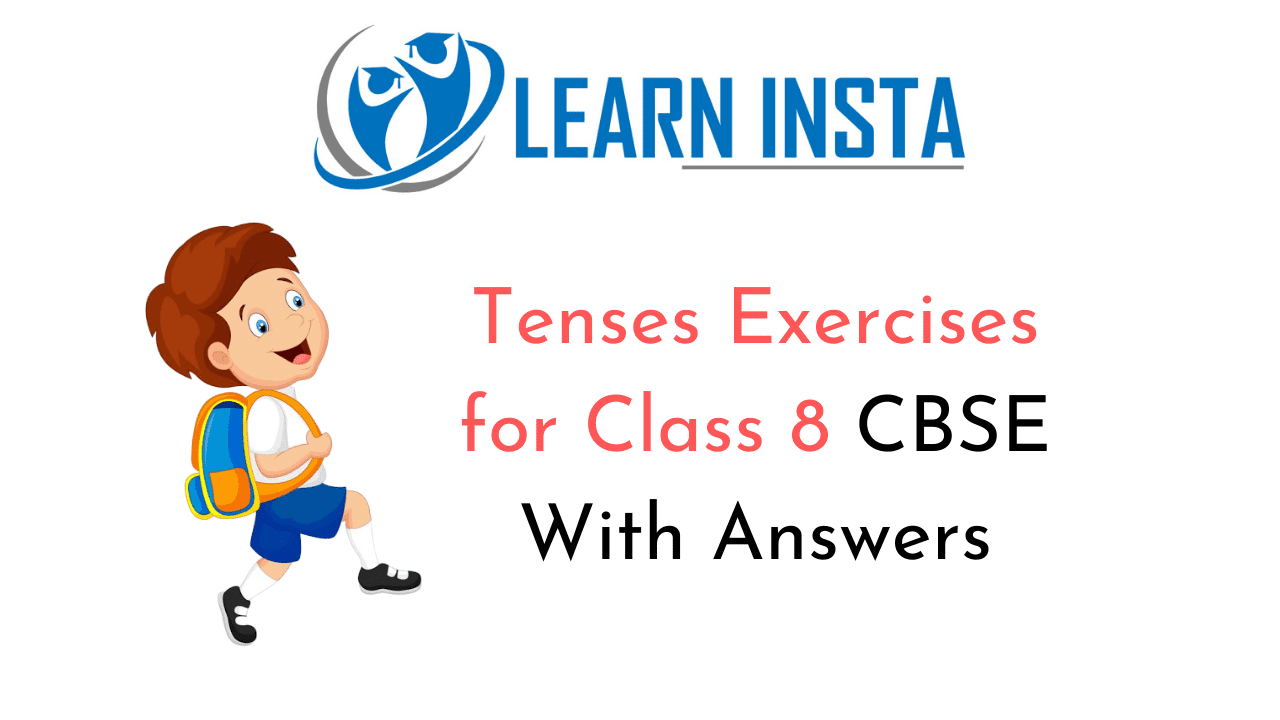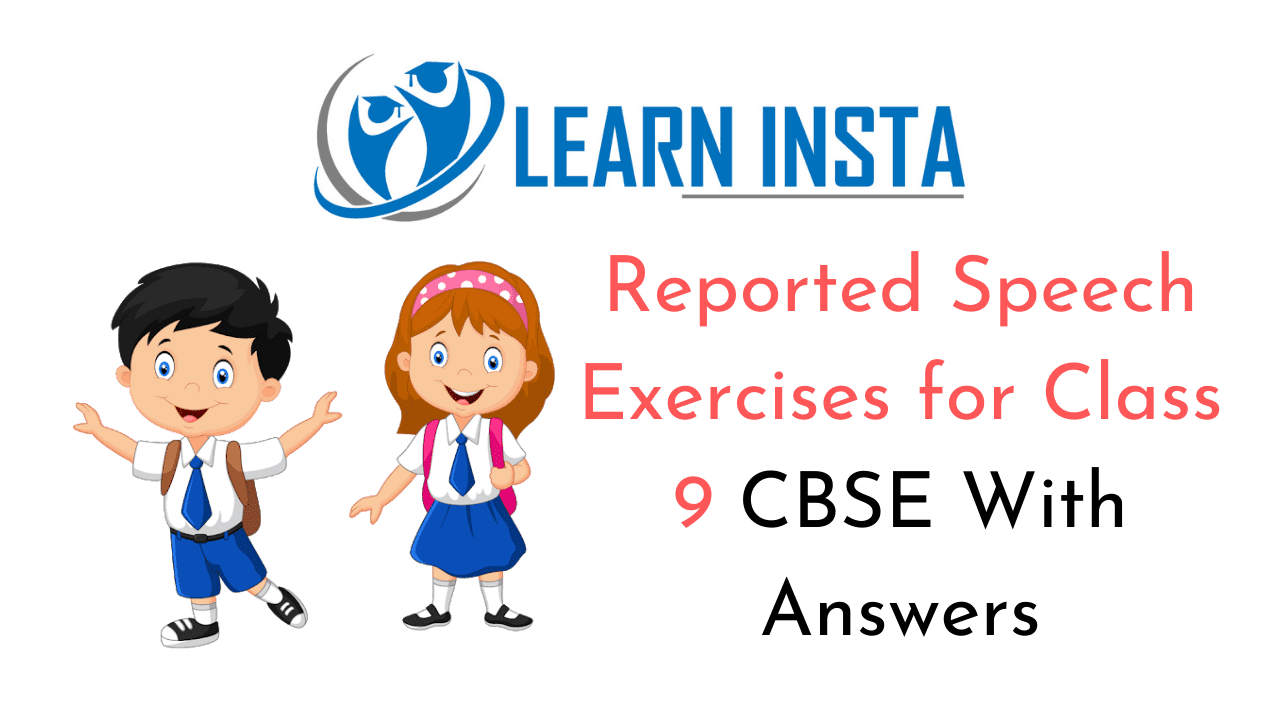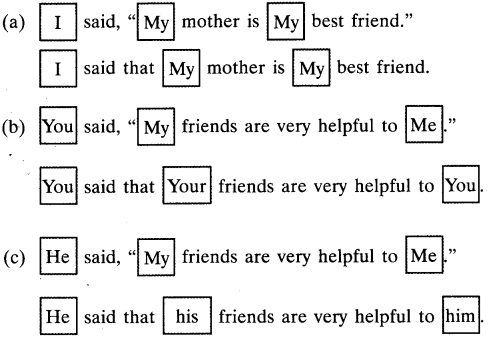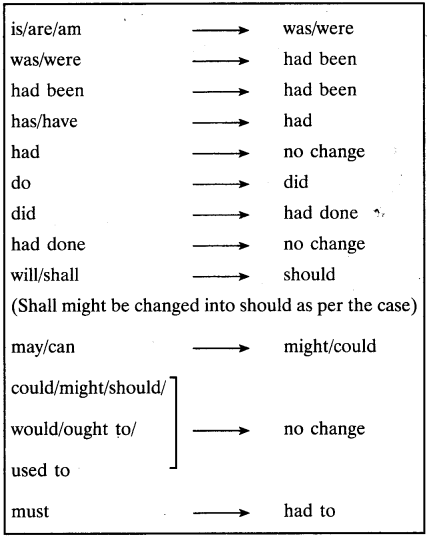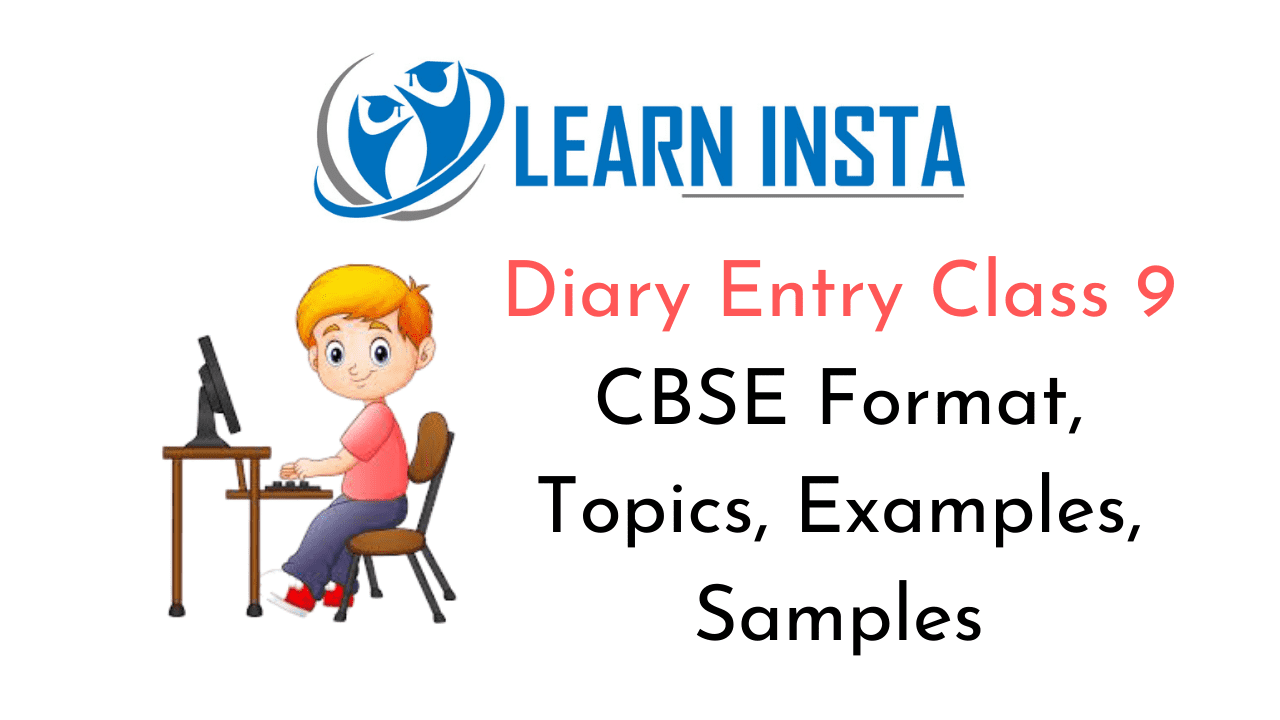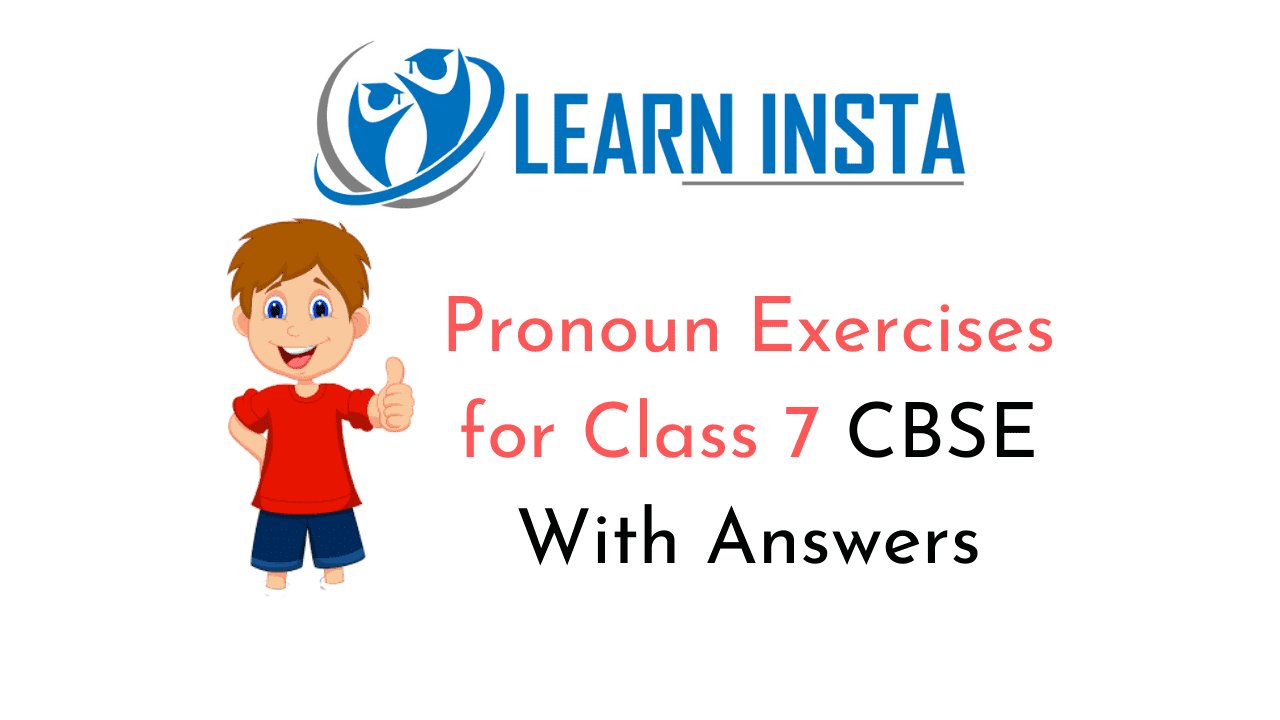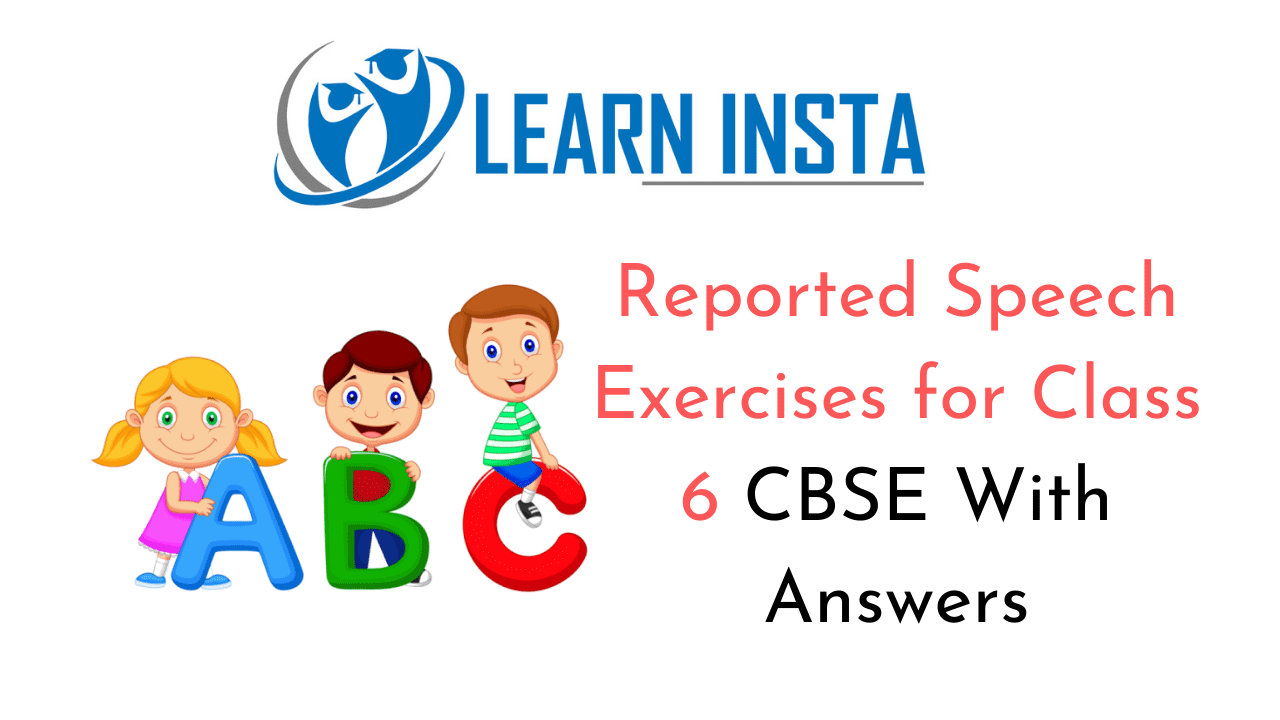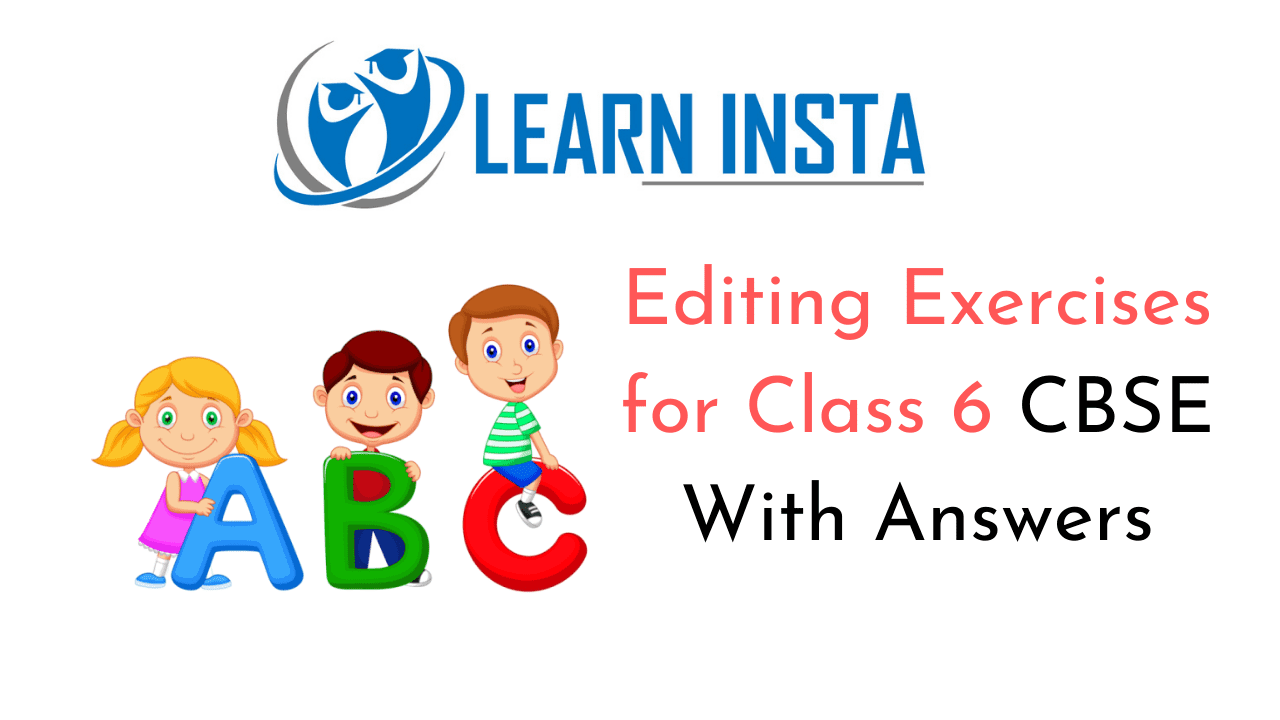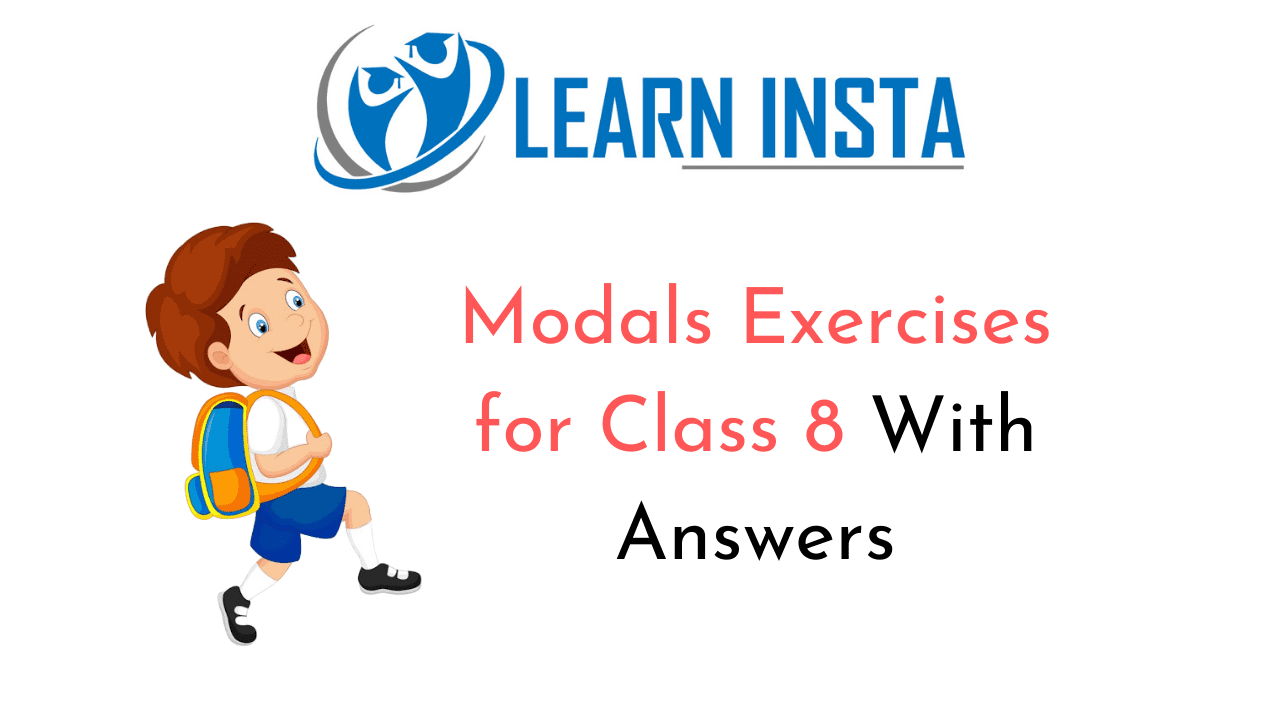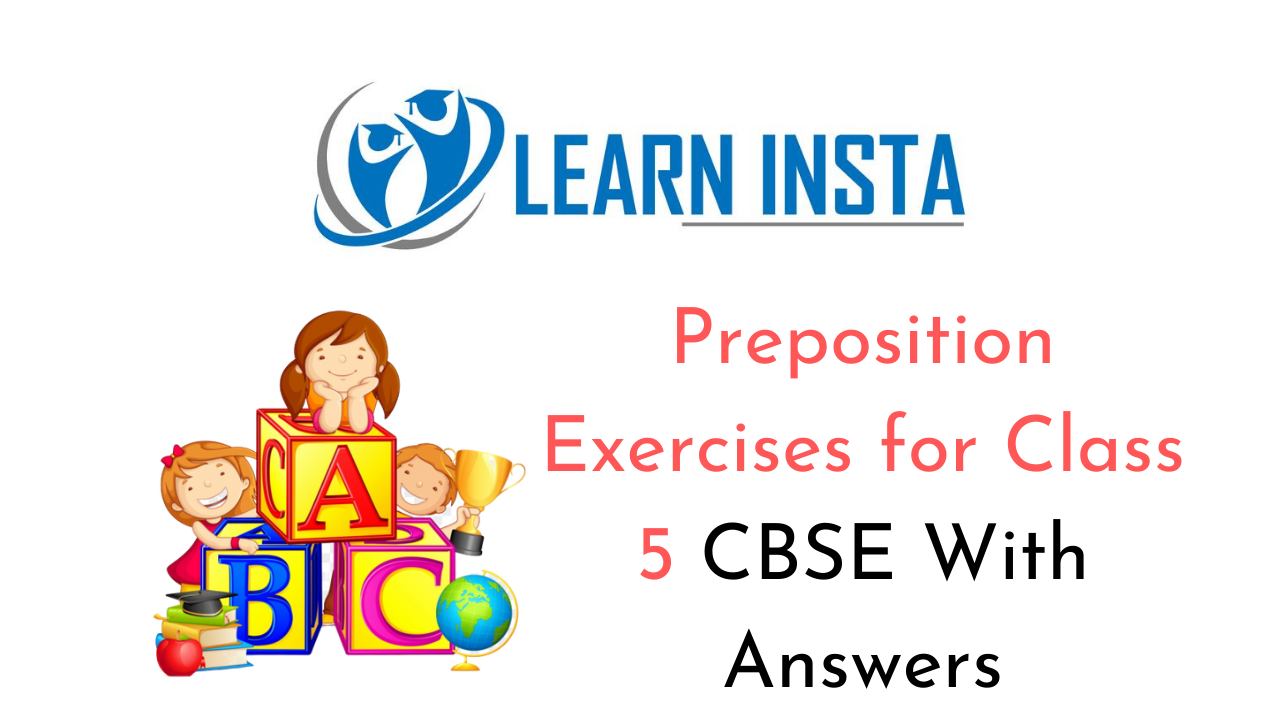 Definition: A preposition is a word placed before a noun or a pronoun to show in what relation the person or thing denoted by it stands in regard to something else.
Definition: A preposition is a word placed before a noun or a pronoun to show in what relation the person or thing denoted by it stands in regard to something else.
This grammar section explains Online Education English Grammar in a clear and simple way. There are example sentences to show how the language is used. https://ncertmcq.com/preposition-exercise-for-class-5/
Online Education Preposition Exercises for Class 5 CBSE With Answers Pdf
Words that show the relation between the naming words, describing words etc. are called prepositions. A preposition that tells where is something or someone is placed is called preposition of place. Across, around, between, in front of, next to, behind, over are some prepositions of place. A preposition that shows when things happen is called preposition of time.
In, On and At are prepositions of time. A preposition that shows some position and direction is called preposition of place and direction. Up, down, to, with, until, besides, near, from are the preposition of place and direction. A prepositional phrase is a group of words that begins with a preposition and ends with the object of the preposition.
For example:
- John leaned against the tree.
- Here, The preposition is against.
- The object of the preposition is tree.
- The prepositional phrase is against the tree.
Preposition Exercises with Answers for Class 5 CBSE Pdf
Preposition Exercise For Class 5
A. Fill in the blanks with in/on.
1. Some children are playing __________ the park while others are walking __________ the road.
2. I will be going to Mumbai __________ the summer vacations.
3. The lady sitting __________ the train fell asleep as the train moved __________ slowly.
Preposition For Class 5
B. Fill in the blanks with at/by.
1. My cricket coaching starts
3 p.m. so I must reach __________ then.
2. The painting was made __________ my grandmother __________ her Goa cottage.
3. I looked __________ the accident scene that had taken place the roadside.
Worksheet On Preposition For Class 5
C. Fill in the blanks with between/beside.
1. I sat __________ my friend who sat two strangers.
2. I placed the table lamp __________ the table which was __________ the beds.
3. Mr. Singh divided the money __________ his sons.
Preposition For Class 5 With Answers
D. Fill in the blanks with for/from.
1. This is the man __________ whom I borrowed the money __________ you.
2. I bought these toys __________ the toy-shop __________ fifty rupees.
3. He works __________ morning to night __________ his family.
4. The courier that has come __________ Delhi is __________ my father.
Preposition Worksheet For Class 5 With Answers
E. Fill in the blanks with of/off.
1. He is very fond __________ watching T.V. and does not switch it __________ until he is told to.
2. The dog jumped __________ the roof __________ our aunt’s house.
3. My toy aeroplane can take __________ the ground because it is made __________ good quality.
Preposition Worksheet Class 5
F. Fill in the blanks with to/with.
1. I like __________ play cricket
2. I asked him __________ stay back the others.
3. My father did not want me __________ go to the movie __________ friends.
Preposition Class 5 Exercise
G. Fill in the blanks with through/till.
1. The boys walked __________ the dark tunnel __________ they reached the end.
2. He could not see __________ the fog, so he had to wait __________ it lifted.
3. She went __________ a difficult time __________ she got a good job.
Preposition Exercise Class 5
H. Complete the notice given below by using suitable prepositions from the box. The first one has been done for you.
|
on, in, by, between, with, beside, at, for, from, of, off 25 July 20xx A picnic is being organized for students (a) __________ Class X (b) __________ August 10, 20xx. The bus will leave the school (c) __________ 8.00 a.m. sharp. The picnic hours are (d) __________ 8 a.m. to 3.00pm. Students must be dressed (e) __________ their school uniform. Those interested to go should give their names along (f) __________ a sum of Rs. 300/- to the undersigned latest (g) __________ August 01, 20xx. Manik |
Preposition Class 5
I. Given below is a passage with blanks. Fill in each blank with appropriate prepositions.
It was Tuesday so (a) __________ 1.05 p.m. Madhav placed the bird’s cage (b) __________ the window. The cat was sleeping (c) __________ the table that was kept (d) __________ the sofas. Madhav was angry. “You always sleep (e) __________ the window, why are you here today?” The cat jumped (f) __________ the table and went away (g) __________ that room. Soon it was fast asleep (h) __________ the foot of Madhav’s bed.
Worksheet Of Preposition For Class 5
J. Fill in the blanks with suitable prepositions. The first one has been done for you as an example.
One night I was very upset. I decided to go for a walk. I walked (a) __________ beside the lake for a long time. When I looked (b) __________ my watch I realised I had been walking for two hours. As I was (C) __________ my way back home without realising I started walking (d) __________ Sameer’s house. When I reached Sameer’s room, I switched (e) __________ the light. I saw Sameer sitting (f) __________ his bed. (g) __________ seeing me he raised his head. He looked very sick. I stood (h) __________ his bed and he grabbed me (l) __________ both arms. I could see tears (j) __________ his eyes.
Preposition Exercise For Class 5 With Answers
K. Given below is a passage. There is a preposition missing in each line where a’s has been marked. Write the missing preposition in the space provided. The first one has been done as an example.
Kishor looked/the scene. He was at
fascinated/the beautiful hills. The __________
valley/two hills was green and __________
lively. The birds/the trees sang __________
sweet songs and the flowers/the __________
valley swayed/the breeze. The hut __________
/the river looked peaceful, far from __________
the noise/the city. __________
Compound Prepositions
Fundamentals
Compound prepositions are made up of two or more words. according to, as of, aside from, because of, by means of, in addition to, in front of, in place of, in spite of, instead of, on account of, out of, owing to, prior to, due to are some compound prepositions.
Presentation
Read the picture story.
Out of five toys, Sarita prefers to buy a teddy bear for her daughter. She asks for the opinion of her daughter because she wants her to be happy.
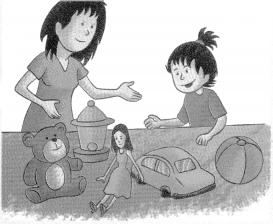
She keeps all the five toys in front of her daughter and allows her to choose one of them. Her daughter chooses a Barbie doll instead of a teddy bear.
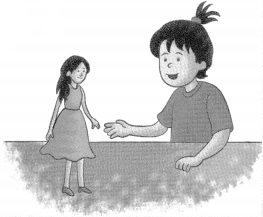
On account of her daughter’s opinion, Sarita decides to buy a Barbie doll in addition to a teddy bear. Sarita’s daughter becomes very happy after getting both the toys.
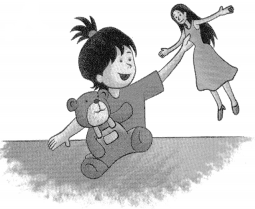
Compound Prepositions Exercises With Answers Class 5 CBSE
Prepositions Worksheet For Class 5
A. Answer the following questions as per the story.
1. What does Sarita prefer to buy? __________
2. How does Sarita get the opinion of her little daughter? __________
3. What does Sarita decide to buy at the end of the story? __________
Preposition Exercises For Class 5
B. Fill in the blanks with suitable compound prepositions given in the box. The first one has been done for you.
1. Vijay has no pal aside from Arun.
2. Eat more fruit __________ candy.
3. My car is __________ a big van.
4. He is late __________ his car’s flat tyre.
5. The children go to school __________ a school bus. in front of,
6. We cancelled the picnic __________ the rain.
7. I am thin __________ being tall.
8. He left __________ my rudeness.
9. __________ 30 runners, he came in third.
10. __________ my wedding, I was busy.
Compound Prepositions Practice Exercises Class 5 CBSE Pdf
Preposition Test For Class 5
A. Fill in the blanks with suitable compound prepositions given in the box.
behalf, next, with, to, out, top
1. With respect __________ your order of 03/05/06, we regret to inform you that this book is no longer in print.
2. __________ reference to the question of overtime, the board of directors have decided that they cannot change their decision.
3. I’m afraid that Ms. Suman is __________ of the office at the moment.
4. On __________ of the pollution problem, it is also almost impossible to find somewhere to park.
5. May I thank you on __________ of the entire committee? We are really grateful for your hard work.
6. Who’s this standing __________ to your sister in this photo?
Preposition Questions For Class 5
B. Choose the right compound preposition.
1. The weather will be great __________ the newspaper.
( ) according from
( ) according of
( ) according to
2. They arrived late __________ the heavy traffic.
( ) because to
( ) because from
( ) because of
3. Amir lives __________ his work.
( ) close to
( ) close of
( ) close from
4. There must have been an accident on the road __________ us.
( ) ahead from
( ) ahead to
( ) ahead of
5. He takes the train __________ his fear of driving.
( ) due for
( ) due from
( ) due to
6. We achieved our sales target __________ all your hard work.
( ) thanks from
( ) thanks with
( ) thanks to
7. It’s open every day __________ Sunday.
( ) except from
( ) except for
( ) except with
8. I’ll ride in the carriage __________ you and Natalie.
( ) along for
( ) along with
( ) along from
